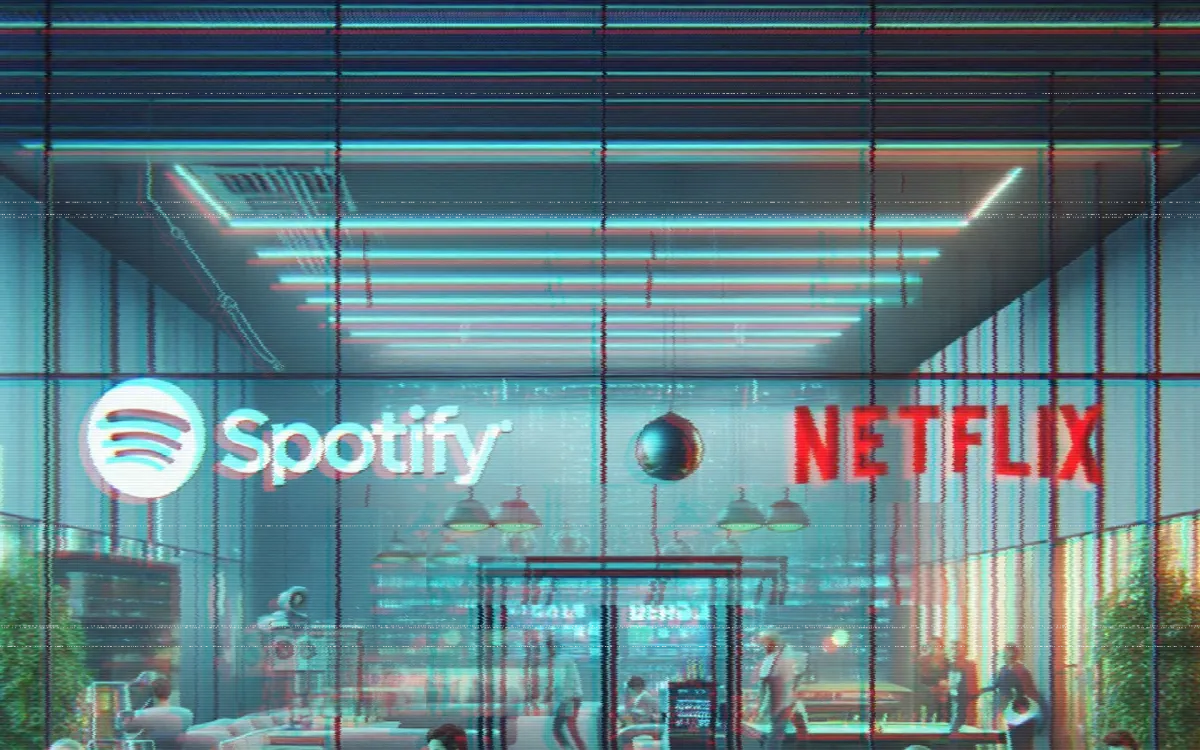
The world of streaming entertainment is a battleground, with tech titans like Apple, YouTube, Google, and Amazon vying for dominance. But what if two of the leading independent streamers, Spotify and Netflix, joined forces? This potential merger could create a formidable competitor, disrupting the current landscape and offering exciting possibilities for both companies and consumers.
On the surface, Spotify and Netflix might seem like an unlikely pair. One focuses on music, the other on video. Yet, both are subscription-based services boasting massive user bases and leadership in their respective markets. A closer look reveals potential for a strategic union:
Complementary Strengths: Merging music and video streaming under one roof creates a one-stop shop for entertainment, potentially increasing customer satisfaction and reducing churn. Imagine seamlessly switching between your favorite playlist and a gripping documentary, all within a single platform.
Content Powerhouse: Combined, Spotify and Netflix would boast a vast library of licensed music and critically acclaimed original content. This expanded offering could rival the entertainment catalogs of tech giants, giving consumers more choice and value.
Synergy and Efficiency: The merger could lead to operational efficiencies by combining resources and infrastructure. Imagine leveraging Spotify's recommendation algorithms to personalize video recommendations on Netflix, or vice versa.
A Spotify-Netflix merger could create a powerful force to challenge the dominance of tech giants in the streaming space. Here's how:
Negotiation Leverage: A combined entity would hold greater negotiating power with music labels and movie studios, potentially leading to better content acquisition deals and ultimately, more competitive subscription prices for consumers.
Innovation Powerhouse: The merger could spark a wave of innovation, with combined resources and talent driving the development of new features and functionalities that enhance the user experience.
A Champion for Independents: A stronger, independent streaming entity could act as a counterweight to the tech giants, ensuring fairer treatment for independent artists, filmmakers, and studios within the streaming ecosystem.
Challenges and Considerations
Of course, a merger of this magnitude wouldn't be without its challenges. Regulatory hurdles and potential antitrust concerns would need to be addressed. Additionally, integrating the corporate cultures and operational models of the two companies would require careful planning and execution.
The advertising landscape could also be significantly impacted by a Spotify-Netflix merger. The combined platform would hold an unparalleled treasure trove of user data on music preferences, viewing habits, and demographics. This would make them an even more attractive proposition for advertisers, allowing for highly targeted and effective ad campaigns across both audio and visual mediums. Additionally, the merger could create new advertising formats, like sponsored playlists or integrated product placements within original content.
Despite the challenges, the potential benefits of a Spotify-Netflix merger are significant. It could create a more competitive streaming landscape, offering consumers greater choice, value, and innovation. This powerful union could also challenge the dominance of tech giants, ensuring a more diverse and equitable streaming ecosystem for all.
Subscription Services with Divergent Business Models
While both companies rely on subscription fees, their approaches to content ownership and revenue distribution differ starkly.
Netflix: The Content Creator
Netflix invests heavily in creating its own original content, spending a staggering $17 billion in 2024 on this endeavor according to the image. This proprietary content strategy allows Netflix to differentiate itself from competitors and fosters subscriber loyalty. However, it also comes with a significant financial burden.
Spotify: The Content Distributor
Spotify acts primarily as a distributor of music licensed from record labels and artists. The company pays out roughly 70% of its revenue to rights holders, leaving a smaller profit margin compared to Netflix. However, this model also avoids the substantial upfront costs associated with content creation.
Financial Performance and Market Dynamics
The financial health and market dynamics of the two companies also diverge considerably, according to the data in the image:
- Market Capitalization: Netflix boasts a market capitalization of $280 billion, significantly higher than Spotify's $60 billion.
- Revenue and Free Cash Flow: Netflix generates substantially more revenue ($9.4 billion versus $3.9 billion in Q1 2024) and free cash flow ($2.1 billion versus $225 million in Q1 2024) compared to Spotify.
- Subscriber Growth: While both have large subscriber bases (270 million for Netflix and 239 million for Spotify), Netflix has been experiencing faster growth, adding 9.3 million subscribers in Q1 2024 compared to Spotify's 3 million.
- Market Size: The video streaming market, valued at an estimated $701 billion in 2024, dwarfs the music streaming market, estimated at $28.6 billion in 2023 with $17.6 billion from streaming services.

